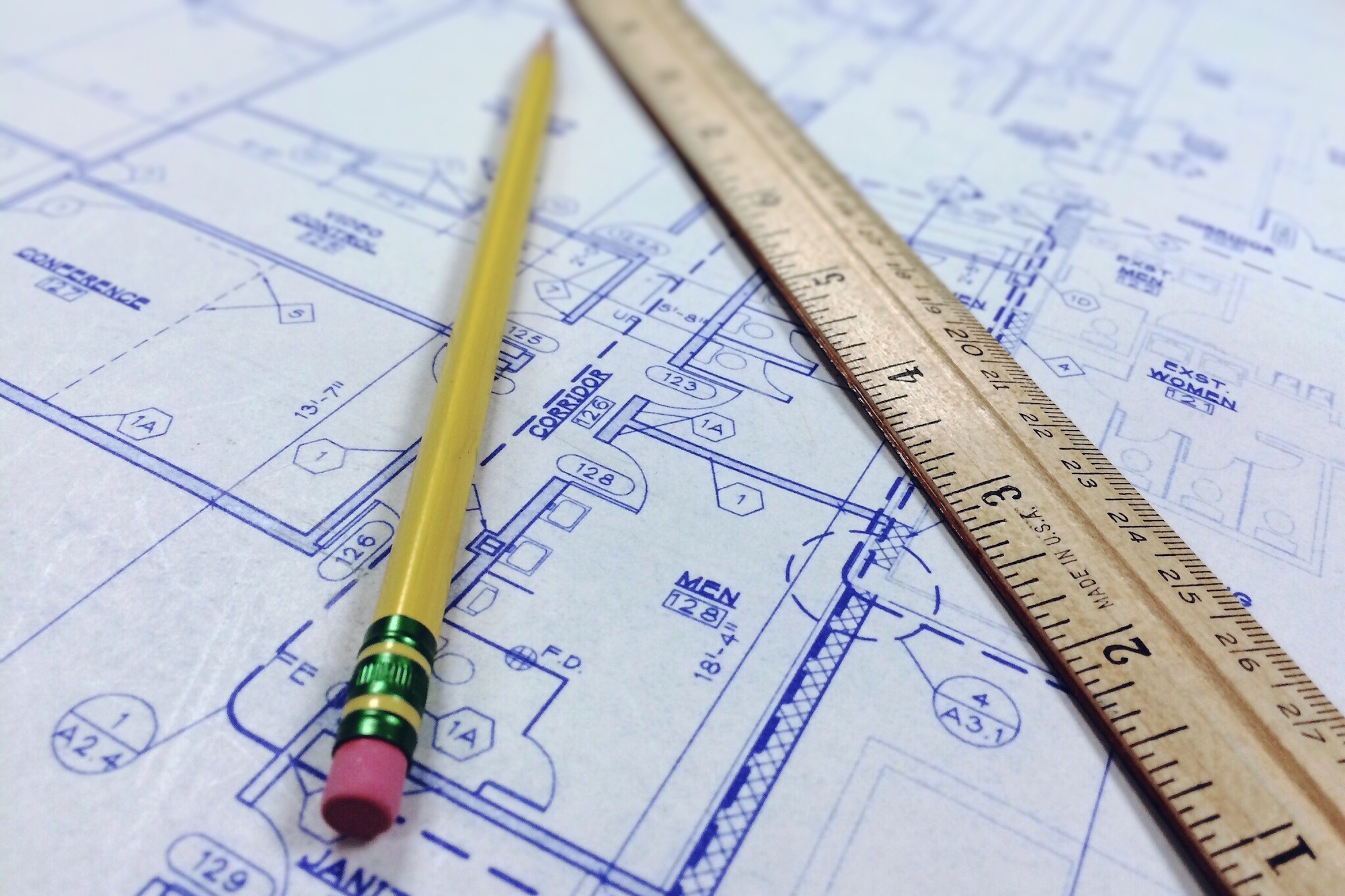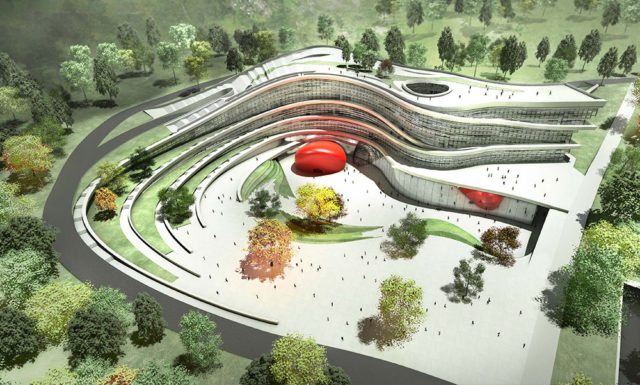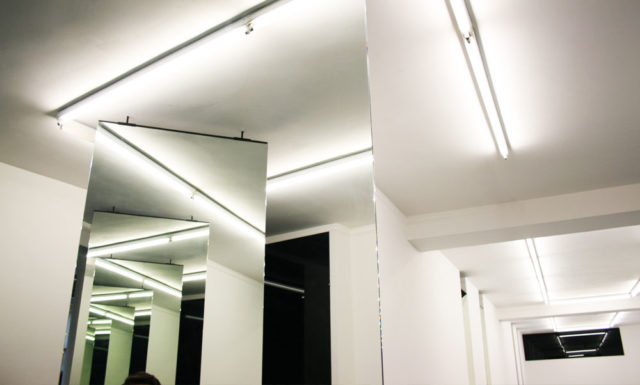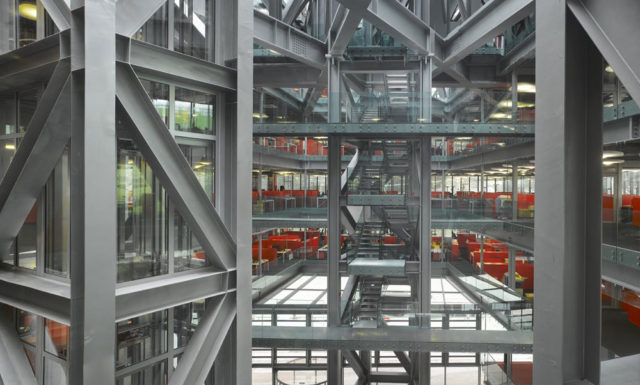
Why the World Needs Architecture Thinking
octobre 3, 2014 — Uncategorized
Some years ago, in 2006, I was teaching in a private architecture school in Paris. The school wasn’t concerned enough by the evolution of the world. So I convinced a couple of teachers to set up a new school and we started working on it. But some months later, the new director of our school resigned, and I became the director for five years. I tried to push the school, to build it, to make it more international and connected to the world, but eventually I resigned. On that same day, I was having a drink with a group of fellow teachers in a bar in Paris when my idea of a new architecture school was born again.

We started out with the idea of building a “normal” or “usual” school of architecture. However, the more I traveled and saw how the schools were organized in the States, in England and all the places I visited, I said to myself: “We have to change the way of educating architects, we have to find another way of teaching, we have to be much more open, flexible and less academic, even if we have to fulfil the constraints of the academic system.” I discovered maker spaces, the MOOC [Massive Online Open Courses], and realized that if we built a new school, we had to innovate and re-question everything. And that’s how we started to be very different.
Architecture is More Than a Profession: It’s a Discipline
I don’t believe we need to shape the city of tomorrow. When you say “shape” I think about a form, but it’s not a question of form. It’s a question of communication: the way people and things connect to each other. For me, architects are very good at that. Or they could be very good if their studies were very good.
Architecture is much more than a profession. It’s a discipline. And it’s a discipline in which you have to analyze very complex situations, large and small. We have to understand, discover and then propose a solution. It’s a very particular discipline, which could be very efficient for the world, and very efficient for cities. And that’s why, when many people today speak about design thinking, I speak about architecture thinking – because it’s much more powerful. It’s not just about the surface of the thing, and the shape of the thing, or the form – we go deeper inside.
When many people today speak about design thinking, I speak about architecture thinking – because it’s much more powerful
Architects Have to be Entrepreneurs
In this changing world, with the evolution of the sharing economy and open source technology, architects have to be concerned. I believe that the role of the architect will remain important.
Architects could be very good entrepreneurs, but today they are not educated that way. They are just educated to be professional architects. Architects could invent new things, not only architecture, but also objects, the environment, the organization of urban space. When people look at the work of architects they think that we are just doing plans.But plans are just a result of a way of thinking and research.
Architects have to be entrepreneurs, because the discipline of architecture is an activity of research. First we research and then we find solutions. It’s a vital discipline in a world where we have to constantly invent and create.
If, in 50 years’ time we are still human, then we will need architects, or the discipline of architecture – architecture thinking

It’s only since the middle of the 20th century that architects have been solely concerned by building. It’s because of the splitting into “orders” or “chambers” of professions. Before, when you were studying in a Fine Arts school for example, you could be an architect, but also an artist, set designer, publisher, writer… You could share, mix, pass and be very transversal. Today everybody has to be in boxes. If you go into another box everyone looks at you and says, “Why are you doing that?” Today, many people are coming to architecture. Artists are sometimes proposing buildings. Why could architects not cross over to other disciplines? In my own practice, I do architecture, urban planning, design and artwork. Why not tomorrow fashion? If you think about the beginning of the 20th century, people were working like that and thinking like that: for example the Constructivists in Russia. In the early 90s, I met an architect in Beijing who had opened a gallery, who was also a publisher and designer. What’s the problem? For me there is no problem.
We have to stop categorizing and being too specific
We have to stop categorizing and being too specific. The world needs people who are much more open-minded. In fact, I chose the name of my school, Confluence, because it refers to the site in Lyon, but also because the French word means “convergence”. It encapsulates the transversal nature of the different disciplines at the school.
It’s actually by chance that my new school – officially entitled Confluence Institute for Innovation and Creative Strategies in Architecture – is in Lyon. I co-founded the school with Matteo Cainer and we hesitated about creating the school in Paris or in another country. Then one day I was explaining the project to a friend in Lyon, who said to me, “Why not establish it in Lyon?” I did some research and discovered that Lyon is really dynamic, not only in terms of architecture. Everything to do with new ways of urban living was first in Lyon. If you think about the Vélib’ in Paris, they did Vélo’V before. If you think about car sharing, they did that before in Lyon. Now they have an initiative about urban mobility connections that is not yet in Paris. Lyon is connected to the international scene: to Geneva, Italy and Barcelona, and also to Japan, to Dubai, the States. Lyon also has an important university. The city has a very strong and dynamic industry, and entrepreneurs and investors because of that. It’s also the city of cinema: the Frères Lumière came from Lyon, and of moving images. It’s a key place for chemistry, pharmacy and robotics. And Lyon is renowned for its gastronomy and has a famous food fair. Because of all these reasons, I said, “OK, this is a good city to set up a new school.” So I wrote a letter to the Mayor, and he told me – “Really, yes! I will help.” So that’s how it happened.
Confluence: A Place Where Architects Learn to Change the World
Anyone can apply to study at Confluence, but only if they want to change the world

Anyone can apply to study at Confluence, but only if they want to change the world. If they think they will just replicate buildings they don’t have to come to Confluence. At Confluence, we’ll encourage our students to take a position, to be engaged in the world, have their own opinion and be self-critical. This isn’t really the attitude of young people today – they all want to be individual but are scared of being different.
Our teaching model will be based around annual architecture studios. One teacher will follow students throughout the year, but in the mean time there will be two intensive workshops with visiting lecturers from all over the world every month: architects, geographers, engineers, physicians, constructors, builders, artists… There will be undergraduate degree and also a Master’s. People can join the second cycle of the undergraduate program or the Master’s program even if they have not studied architecture – they could come from engineering, sociology… We love to integrate people from other disciplines.
We are starting out with between around 10 students this year and we’ll get bigger but not more than about 200 students. There are 20 schools in France and we will be only one per cent of the students in architecture in France. We are really little. But this little thing is perceived even before existing as perturbing everyone. I don’t know why!
There are only a few people in the world who are trying to do something different
There are only a few people in the world who are trying to do something different, and I know some of them. This is why we have to change the system. When we went to Venice this year, everybody was talking about our school, coming to me and saying, “Can you tell us a bit more, we are very curious, we think we have to change and move,” And I said, “Yes! Come to us and we will help you do it.”
Based upon an interview conducted by Marina Bradbury, Director of Communications, NewCities.